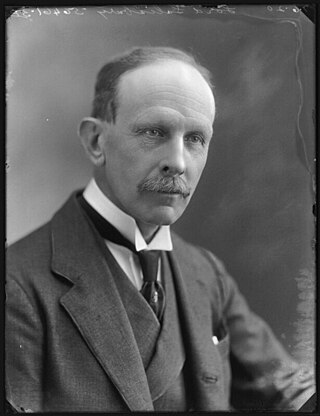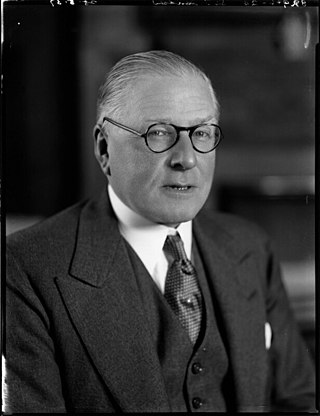Coat of arms
  |
|
Stanley Baldwin received numerous honours in recognition of his career in politics. These included:
Baldwin was elevated to the House of Lords on 8 June 1937, upon his standing down as Leader of the Conservative Party and from his seat in the House of Commons. He took the title of Earl Baldwin of Bewdley, with the subsidiary title of Viscount Corvedale, of Corvedale in the County of Salop. He sat with the Conservative Party.
  |
|
| Country | Date | Decoration | Post-nominal letters |
|---|---|---|---|
| 1897 –14 December 1947 | Justice of the Peace for the County of Worcestershire | JP | |
| 5 June 1920 –14 December 1947 | Member of His Majesty's Most Honourable Privy Council | PC | |
| 2 August 1927 –14 December 1947 | Member of the King's Privy Council for Canada | PC | |
| 28 May 1937 –14 December 1947 | Knight of the Order of the Garter | KG | |
| Country | Date | Decoration | Post-nominal letters |
|---|---|---|---|
| 12 May 1937 | King George VI Coronation Medal | ||
| Location | Date | School | Degree |
|---|---|---|---|
| Trinity College, Cambridge | Third-class honours Bachelor of Arts (BA) in History | ||
| Mason College | Metallurgy |
| Location | Date | School | Position |
|---|---|---|---|
| 1923 –1926 | University of Edinburgh | Rector | |
| 1928 –1931 | University of Glasgow | Rector | |
| 1929 –1947 | University of St Andrews | Chancellor | |
| 1930 –1947 | University of Cambridge | Chancellor | |
| 1930 –1947 | Girton College, Cambridge | Visitor | |
| Location | Date | School | Degree |
|---|---|---|---|
| 12 June 1923 | University of Cambridge | [1] | |
| 1925 | University of Oxford | Doctor of Civil Law (DCL) [2] | |
| 26 January 1934 | University of Liverpool | [3] | |
| Country | Date | Organisation | Position |
|---|---|---|---|
| 1927 –14 December 1947 | Royal Society | Fellow (FRS) | |
| 1938 | Marylebone Cricket Club | President [4] | |
![]() Canada (British Columbia) Mount Stanley Baldwin (1927).
Canada (British Columbia) Mount Stanley Baldwin (1927).

Stanley Baldwin, 1st Earl Baldwin of Bewdley, was a British statesman and Conservative politician who dominated the government of the United Kingdom between the world wars. He was prime minister on three occasions, from May 1923 to January 1924, from November 1924 to June 1929, and from June 1935 to May 1937.

Douglas McGarel Hogg, 1st Viscount Hailsham, was a British lawyer and Conservative politician who twice served as Lord Chancellor, in addition to a number of other Cabinet positions. Mooted as a possible successor to Stanley Baldwin as party leader for a time in the very early 1930s, he was widely considered to be one of the leading Conservative politicians of his generation.

Marylebone Cricket Club (MCC) is a cricket club founded in 1787 and based since 1814 at Lord's Cricket Ground, which it owns, in St John's Wood, London. The club, formerly the governing body of cricket, retains considerable global influence.

John Lawrence Baird, 1st Viscount Stonehaven, was a British politician who served as the eighth Governor-General of Australia, in office from 1925 to 1930. He had previously been a government minister under David Lloyd George, Bonar Law, and Stanley Baldwin.

Bewdley is a town and civil parish in the Wyre Forest District in Worcestershire, England, on the banks of the River Severn. It is in the Severn Valley, and is 3 miles (4.8 km) west of Kidderminster, 10 miles (16 km) north of Worcester and 25 miles (40 km) southwest of Birmingham. It lies on the River Severn, at the gateway of the Wyre Forest national nature reserve, and at the time of the 2021 census had a population of 9,267. Bewdley is a popular tourist destination and is known for the Bewdley Bridge, designed by Thomas Telford, and the well-preserved Georgian riverside.

Oliver Ridsdale Baldwin, 2nd Earl Baldwin of Bewdley, known as Viscount Corvedale from 1937 to 1947, was a British socialist politician who had a career at political odds with his father, the Conservative prime minister Stanley Baldwin.

The 1923 United Kingdom general election was held on Thursday 6 December 1923. The Conservatives, led by Prime Minister Stanley Baldwin, won the most seats, but Labour, led by Ramsay MacDonald, and H. H. Asquith's reunited Liberal Party gained enough seats to produce a hung parliament. It is the most recent UK general election in which a third party won over 100 seats and the most narrow gap, of a "mere" 100 seats, between the first and third parties since. The Liberals' percentage of the vote, 29.7%, trailed Labour's by only one percentage point and has not been exceeded by a third party at any general election since.

Earl Baldwin of Bewdley is a title in the Peerage of the United Kingdom. It was created in 1937 for the Conservative politician Stanley Baldwin, who had served as MP for Bewdley from 1908 to 1937 and was Prime Minister of the United Kingdom three times. He was made Viscount Corvedale, of Corvedale in the County of Salop, at the same time he was given the earldom.

James Edward Hubert Gascoyne-Cecil, 4th Marquess of Salisbury,, known as Viscount Cranborne from 1868 to 1903, was a British statesman.

The Carlton Club is a private members' club in the St James's area of London, England. It was the original home of the Conservative Party before the creation of Conservative Central Office. Membership of the club is by nomination and election only.

John Colin Campbell Davidson, 1st Viscount Davidson,, known before his elevation to the peerage as J. C. C. Davidson, was a British civil servant and Conservative Party politician, best known for his close alliance with Stanley Baldwin. Initially a civil servant, Davidson was private secretary to Bonar Law between 1915 and 1920. After entering parliament in 1920, he served under Baldwin as Chancellor of the Duchy of Lancaster between 1923 and 1924 and as Parliamentary and Financial Secretary to the Admiralty between 1924 and 1926. From 1926 to 1930 he was Chairman of the Conservative Party. He was once again Chancellor of the Duchy of Lancaster between 1931 and 1937, firstly under Ramsay MacDonald and from 1935 onwards under Baldwin. On Baldwin's retirement in 1937, Davidson left the House of Commons and was ennobled as Viscount Davidson. Despite being only 48, he never took any further active part in politics. His wife Frances, Viscountess Davidson, succeeded him as MP for Hemel Hempstead. Lord Davidson died in London in 1970.
Edward Alfred Alexander Baldwin, 4th Earl Baldwin of Bewdley was a British educator, hereditary peer, and Crossbench member of the House of Lords.

George Granville Sutherland-Leveson-Gower, 5th Duke of Sutherland, KT, PC, styled Earl Gower until 1892 and Marquess of Stafford between 1892 and 1913, was a British courtier, patron of the film industry and Conservative party politician from the Leveson-Gower family. He held minor office in the Conservative administration of Bonar Law and Stanley Baldwin in the 1920s and was later Lord Steward of the Household from 1935 to 1936. As a noted patron of the British film industry, the Sutherland Trophy, awarded by the British Film Institute, is named in his honour.
Arthur Windham Baldwin, 3rd Earl Baldwin of Bewdley was a British businessman, RAF officer, and author. His books included a combative defence of the posthumous reputation of his father, Stanley Baldwin, the former prime minister of the UK, in which he severely criticised several leading historians of the time.
Bewdley was the name of a constituency of the House of Commons of the Parliament of the United Kingdom from 1605 until 1950. Until 1885 it was a parliamentary borough in Worcestershire, represented by one Member of Parliament; the name was then transferred to a county constituency from 1885 until 1950. Its MPs included the former Prime Minister Stanley Baldwin, who represented the seat from 1908 to 1937, and afterwards took the name of the constituency as part of his title when he was raised to the peerage.

Nicholas Henry Bourne, Baron Bourne of Aberystwyth is a Conservative Party politician who served as Leader of the Welsh Conservative Party and Member of the Welsh Assembly for Mid and West Wales from August 1999 until May 2011.
The Freedom of the City of London started around 1237 as the status of a 'free man' or 'citizen', protected by the charter of the City of London and not under the jurisdiction of a feudal lord. In the Middle Ages, this developed into a freedom or right to trade, becoming closely linked to the medieval guilds, the livery companies. In 1835, eligibility for the freedom of the City was extended to anyone who lived in, worked in or had a strong connection to the City. The freedom that citizens enjoy has long associations with privileges in the governance of the City.

Lucy Baldwin, Countess Baldwin of Bewdley, was an English writer and activist for maternal health. From 1892 until her death in 1945, she was the wife of Stanley Baldwin, three-time Prime Minister of the United Kingdom. She was invested as a Dame of Grace, Order of Saint John of Jerusalem and a Dame Grand Cross, Order of the British Empire, and styled as Countess Baldwin of Bewdley on 8 June 1937.
Sir Geoffrey Storrs Fry, 1st Baronet, was private secretary to prime ministers Bonar Law and Stanley Baldwin, and a member of the Fry family.